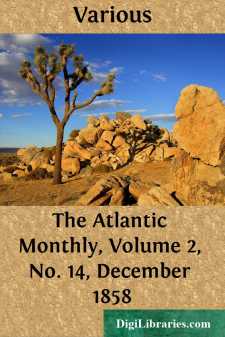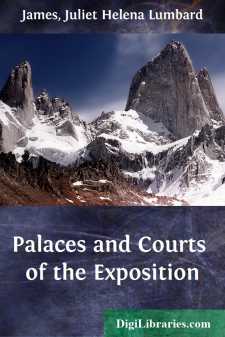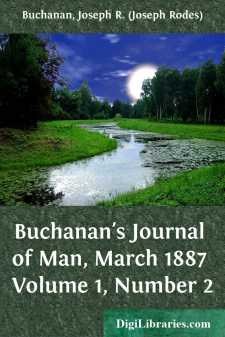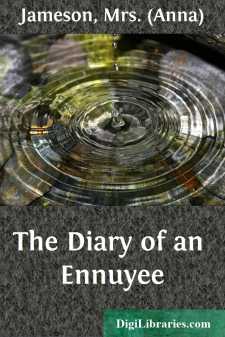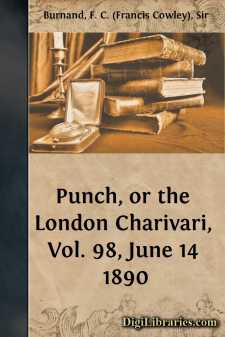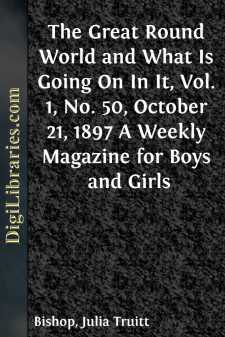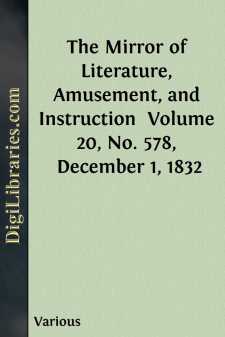Categories
- Antiques & Collectibles 13
- Architecture 36
- Art 48
- Bibles 22
- Biography & Autobiography 813
- Body, Mind & Spirit 142
- Business & Economics 28
- Children's Books 15
- Children's Fiction 12
- Computers 4
- Cooking 94
- Crafts & Hobbies 4
- Drama 346
- Education 46
- Family & Relationships 57
- Fiction 11828
- Games 19
- Gardening 17
- Health & Fitness 34
- History 1377
- House & Home 1
- Humor 147
- Juvenile Fiction 1873
- Juvenile Nonfiction 202
- Language Arts & Disciplines 88
- Law 16
- Literary Collections 686
- Literary Criticism 179
- Mathematics 13
- Medical 41
- Music 40
- Nature 179
- Non-Classifiable 1768
- Performing Arts 7
- Periodicals 1453
- Philosophy 64
- Photography 2
- Poetry 896
- Political Science 203
- Psychology 42
- Reference 154
- Religion 513
- Science 126
- Self-Help 84
- Social Science 81
- Sports & Recreation 34
- Study Aids 3
- Technology & Engineering 59
- Transportation 23
- Travel 463
- True Crime 29
The Atlantic Monthly, Volume 2, No. 14, December 1858
by: Various
Categories:
Description:
Excerpt
THE IDEAL TENDENCY.
We are all interested in Art; yet few of us have taken pains to justify the delight we feel in it. No philosophy can win us away from Shakspeare, Plato, Angelo, Beethoven, Goethe, Phidias,—from the masters of sculpture, painting, music, and metaphor. Their truth is larger than any other,—too large to be stated directly and lodged in systems, theories, definitions, or formulas. They suggest and assure to us what cannot be spoken. They communicate life, because they do not endeavor to measure life. Philosophy will present the definite; Art refers always to the vast,—to that which cannot be comprehended, but only enjoyed and adored. Art is the largest expression. It is not, like Science, a basket in which meat and drink may be carried, but a hand which points toward the sky. Our eyes follow its direction, and our souls follow our eyes. Man needs only to be shown an open space. He will rise into it with instant expansion. We are made partakers of that illimitable energy. Only poetry can give account of poetry, only Art can justify Art; and we cannot hope to speak finally of this elastic Truth, to draw a circle around that which is vital, because it has in it something of infinity,—but we may hope to remove a doubt growing out of the very largeness which exalts and refreshes us. Art is not practical. It offers no precept, but lies abroad like Nature, not to be grasped and exhausted. Neither is it anxious about its own reception, as though any man could long escape the benefit which it brings. Every principle of science, every deduction of philosophy, is a tool. Our very religion, as we dare to name it, is a key which opens the heavens to admit myself and family. Art offers only life; but perhaps that will appear worth taking without looking beyond. Can we look beyond? Life is an end in itself, and so better than any tool.
What is that which underlies all arts as their essence, the thing to be expressed and celebrated? What is poetry, the creation from which the artist is named? We shall answer boldly: it is no shaping of forms, but a making of man. Nature is a plenum, is finished, and the Divine account with her is closed; but man is only yet a chick in the egg. With him it is still the first day of creation, and he has not received the benediction of a completed work. And yet the completion is involved and promised in our daily experience. Man is a perpetual seeker. He sees always just before him his own power, which he must hasten to overtake. He weighs himself often in thought; yet it is not his present, but a presumptive value, of which he is taking account. We are continually entering into our future, and it is so near us, we are already in every hour so full of it, that we draw without fraud on the credit of to-morrow. The student who has bought his first law-book is already a great counsellor. With the Commentaries he carries home consideration and the judicial habit. Some wisdom he imbibes through his pores and those of the sheepskin cover. Now he is grave and prudent, a man of the world and of authority; but if he had chosen differently, and brought home the first book of Theology, his day would have been tinted with other colors. For every choice carries a future involved in itself, and we begin to taste that when we take our course toward it. The habit of leaning forward and living in advance of himself has made its mark upon every man. We look not at the history or performance of the stranger, but at his pretensions. These are written in his dress, his air and attitude, his tone and occupation. The past is already nothing, the present is sliding away; to know any man, we must keep our eyes out in advance on the road he is following. For man is an involuntary, if not a willing traveller. Time does not roll from under his feet, but he is carried along with the current, and can never again be where or what he was. Nothing in his experience can ever be quite repeated. If you see the same trees and hills, they do not appear the same from year to year. Yesterday they were new and strange; you and they were young together. To-day they are familiar and disregarded. Soon they will be old friends, prattling to gray hairs of the brown locks and bounding breath of youth.
The pioneer of our growth is Imagination. Desire and Hope go on before into the wilderness of the unknown; they open paths; they make a clearing; they build and settle firmly before we ourselves in will and power arrive at this opening, but they never await our coming. They are the "Fore-runners," off again deeper into the vast possibility of being. The boy walks in a dream of to-morrow. Two bushels of hickory-nuts in his bag are no nuts to him, but silver shillings; yet neither are the shillings shillings, but shining skates, into which they will presently be transmuted. Already he is on the great pond by the roaring fire, or ringing away into distant starry darkness with a sparkling brand. Already, before his first skates are bought, before he has seen the coin that buys them, he is dashing and wheeling with his fellows, a leader of the flying train.
That early fore-reaching is a picture of our entire activity. "Care is taken," said Goethe, "that the trees do not grow into the sky"; but man is that tree which must outgrow the sky and lift its top into finer air and sunshine. The essential seed is Growth; not shell and bark, nor kernel, but a germ which pierces the soil and lifts the stone....


